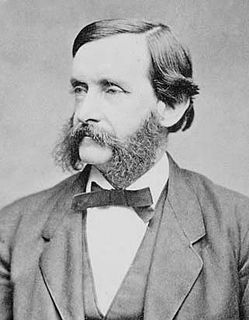A Quote by Jean de la Bruyere
Cunning is none of the best nor worst qualities; it floats between virtue and vice; there is scarce any exigence where it may not, and perhaps ought not to be supplied by prudence.
Related Quotes
If a man of good natural disposition acquires Intelligence [as a whole], then he excels in conduct, and the disposition which previously only resembled Virtue, will now be Virtue in the true sense. Hence just as with the faculty of forming opinions [the calculative faculty] there are two qualities, Cleverness and Prudence, so also in the moral part of the soul there are two qualities, natural virtue and true Virtue; and true Virtue cannot exist without Prudence.
[Prudence] is the virtue of that part of the intellect [the calculative] to which it belongs; and . . . our choice of actions will not be right without Prudence any more than without Moral Virtue, since, while Moral Virtue enables us to achieve the end, Prudence makes us adopt the right means to the end.
A work of art rests its merits in traditional qualities. It may constitute a remarkable feat in craftsmanship; it may be a searching study of psychological states; it may be a nostalgic glance backward; it may be any one of an infinite number of concepts, none of which may have any possible bearing upon its degree of newness.
There is scarce any passion so heartily decried by moralists and satirists, as AMBITION; and yet, methinks, ambition is not a vice but in a vicious mind: in a virtuous mind it is a virtue, and will be found to take its color from the character in which it is mixed. Ambition is a desire of superiority; and a man may become superior, either by making others less or himself greater.
All... religions show the same disparity between belief and practice, and each is safe till it tries to exclude the rest. Test each sect by its best or its worst as you will, by its high-water mark of virtue or its low-water mark of vice. But falsehood begins when you measure the ebb of any other religion against the flood-tide of your own. There is a noble and a base side to every history.
We find nothing easier than being wise, patient, superior. We drip with the oil of forbearance and sympathy, we are absurdly just, we forgive everything. For that very reason we ought to discipline ourselves a little; for that very reason we ought to cultivate a little emotion, a little emotional vice, from time to time. It may be hard for us; and among ourselves we may perhaps laugh at the appearance we thus present. But what of that! We no longer have any other mode of self-overcoming available to us: this is our asceticism, our penance.
For man, when perfected, is the best of animals, but, when separated from law and justice, he is the worst of all; since armed injustice is the more dangerous, and he is equipped at birth with the arms of intelligence and with moral qualities which he may use for the worst ends. Wherefore, if he have not virtue, he is the most unholy and the most savage of animals, and the most full of lust and gluttony. But justice is the bond of men in states, and the administration of justice, which is the determination of what is just, is the principle of order in political society.




































